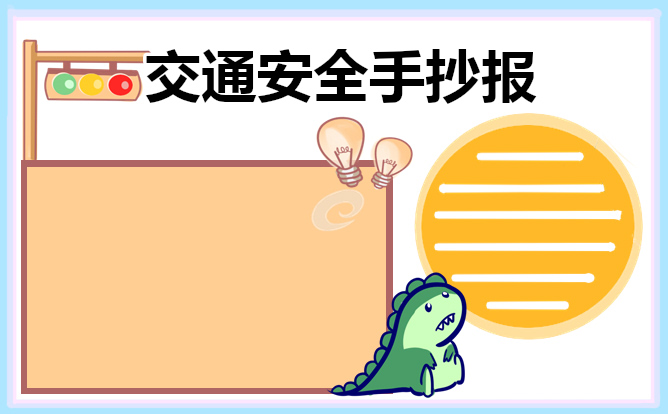新概念英语第一册第105-106课:Full of mistakes
嘴角分享
3249
Lesson 105 Full of mistakes错误百出
Listen to the tape then answer this question.What was Sandra's present?听录音,然后回答问题。给桑德拉的礼物是什么?
THE BOSS:Where's Sandra, Bob?I want her.
. 老 板:鲍勃,桑德拉在哪儿?我要找她。
BOB: Do you want to speak to her?
鲍 勃:您要同她谈话吗?
THE BOSS:Yes, I do. I want her to come to my office. Tell her to come at once.
老 板:是的,我要她到我的办公室来。叫她马上就来。
SANDRA: Did you want to see me?
桑德拉:您找我吗?
THE BOSS:Ah, yes, Sandra. How do you spell "intelligent'? Can you tell me?
老 板:啊,是的,桑德拉。 "intelligent"怎样拼写?你能告诉我吗?
SANDRA: I-N-T-E-L-L-I-G-E-N-T.
桑德拉:I-N-T-E-L-L-I-G-E-N-T。
THE BOSS:That's right. You've typed it with only one 'L'. This letter's full of mistakes. I want you to type it again.
老 板:对的。但你只打了1个“L”。这封信里错误百出。我要你重打一遍。
SANDRA: Yes, I'll do that. I'm sorry about that.
桑德拉:是,我重打。对此我感到很抱歉。
THE BOSS:And here's a little presentfor you.
老 板:这里有一件小礼物送你。
SANDRA: What's it?
桑德拉:是什么?
THE BOSS:It's a dictionary. I hope it'll help you
老 板:是本词典。我希望它能对你有所帮助。
New words and Expressions生词和短语
spell
v. 拼写
intelligent
adj. 聪明的,有智慧的
mistake
n. 错误
present
n. 礼物
dictionary
n. 词典
Notes on the text课文注释
1 Do you want to speak to her?
在这句话中,to speak是动词want的宾语,而这个结构——动词原形前加to——在英文中被称为动词不定式。本课用动词不定式作宾语的例句还有:
I want her to come to my office;
Tell her to come at once;
Did you want to see me;
I want you to type it again等。
2 full of… 充满了...。
3 And here's...
这里and表示承上启下,使上下文紧密联系,当“于是”,“因此,讲。
Lesson 106 I want you/him/her/them to… 我要你/他/她/他们…
Tell him/her/them to… 告诉他/她/他们…

New words and expressions生词和短语
carry
v.携带
correct
v.改正,纠正
keep
v.保存,保留
Lesson 105-106 自学导读 First things first
课文详注 Further notes on the text 1.How do you spell…?……怎样拼写?这是询问某个单词或某人的姓名如何拼写时常用的句型。
2.You've typed it with only one‘L’.但你只打了 1个“L”。
句中it指intelligent一词。这里的with意即“用”。
3.And here's a little present for you.这里有一件小礼物送你。
这是一个倒装句。由here引导、谓语为be的句子通常用倒装语序。这里and是表示承上启下,使上下文紧密联系,当“于是”、“因此”讲。
语法 Grammar in use
动词不定式
在英语中,当一个动词被另一个动词紧跟时,它们之间必须加不定式符号(to)。不定式符号后面的动词只能是原形,而不能是过去式或分词形式。
(1)不定式作动词的宾语(动词+to…):
He wants to buy a car.
他想买辆车。
He hopes to pass the French exam.
他希望自己能通过法语考试。
I want to leave.
我想离开。
(2)有许多动词可以带名词/代词宾语(通常是人称代词宾格),后面再跟不定式(动词+名词/宾格代词+to…):
I want you to carry it.
我想让你扛着它。
He wants them to listen to it.
他想让他们听那个。
Tell him to move it.
让他搬它。
(3)不定式的否定形式是在 to 之前加 not:
He decided not to buy the house.
他决定不买这幢房子。
He told me not to close the window.
他让我不要把窗户关了。
Tell him not to move it.
告诉他不要搬动它。
词汇学习 Word study
1.correct v.
(1)改正;
纠正:
Please correct me if I'm wrong.
如果我错了,请你纠正。
I spent the whole morning correcting exam papers.
我花了整个上午的时间批改试卷。
(2)校正;矫正:
This pair of glasses will correct your eyesight problem.
这副眼镜会有助于矫正你的视力问题。
Oh, let me correct my watch first.
噢,先让我把我的手表对好。
2.break v.
(1)打破;使碎裂:
She told him not to break the vase.
她告诉他别把花瓶打碎了。
He broke a leg in the accident.
他在这起事故中摔断了一条腿。
(2)损坏;弄坏:
His little daughter has broken his favourite camera.
他的小女儿把他心爱的照相机弄坏了。
You shouldn't have bought such expensive toys for him because he will simply break them.
你不应该买这么昂贵的玩具给他,因为他会轻而易举地把它们弄坏的。
(3)破坏;违反:
Any one who breaks the law should be punished.
任何触犯法律的人都应受到惩罚。
The student who broke the school regulations was severely criticized.
那位违反了校规的学生受到了严厉的批评。





